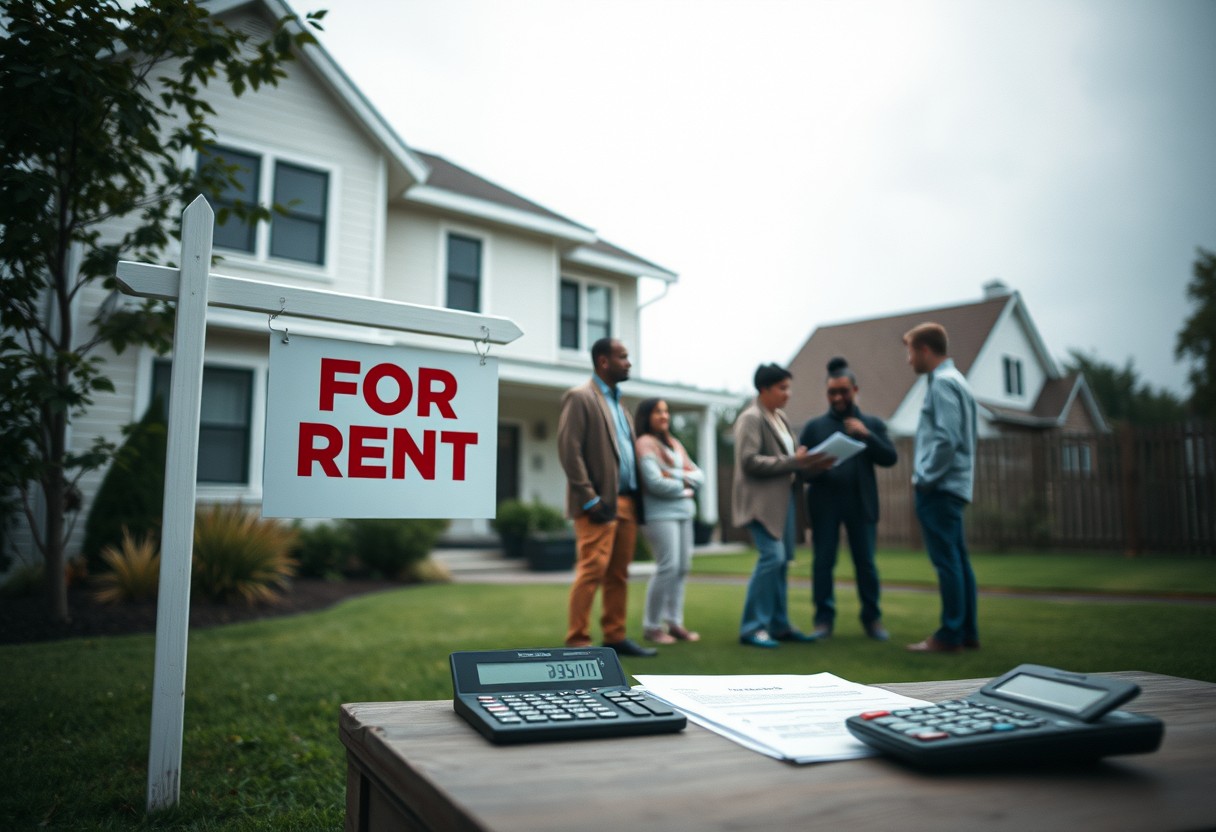What Type Of Insurance Do You Need For Rental Income Properties?
It’s vital to understand the type of insurance you need for your rental income properties to protect your investment. Whether you own a single-family home or a multi-unit apartment complex, having the right coverage can shield you from financial loss due to unforeseen events like natural disasters or tenant-related issues. You should consider landlord insurance, which typically covers property damage, liability, and lost rental income, ensuring your income stream remains steady even during challenging times. By securing the appropriate insurance, you can confidently manage your rental properties.
Understanding Rental Income Properties
To grasp the concept of rental income properties, it is imperative to understand what they are and how they fit into the broader real estate landscape.
Definition of Rental Income Properties
Rental income properties are real estate assets that you own with the primary intention of generating income through renting them out to tenants. These properties can include residential units such as single-family homes, apartments, or multi-family dwellings. By leasing these properties, you can earn a steady stream of rental income, which can help boost your financial portfolio and create wealth over time.
In addition to the rental income you receive, rental properties can also appreciate in value over time, making them a potentially lucrative investment. This dual benefit of cash flow and capital appreciation is what attracts many investors to rental properties.
Types of Rental Properties
Rental properties can be classified into several categories, each offering different levels of risk and reward. Here are some common types of rental properties that you might consider:
- Single-family homes: Ideal for individual families looking for long-term rental agreements.
- Multi-family units: Such as duplexes, triplexes, or apartment buildings; these can house multiple families, maximizing rental income.
- Commercial properties: Including office spaces and retail locations, these often offer higher returns but can come with more risk.
- Vacation rentals: Short-term rentals listed on platforms like Airbnb can generate significant seasonal income.
- Student housing: Catering specifically to college students can provide consistent rental income in certain areas.
| Type of Property | Characteristics |
|---|---|
| Single-family homes | Lower risk, steady demand, potential appreciation. |
| Multi-family units | Higher income potential, more maintenance needs. |
| Commercial properties | Higher returns, longer leases, more complex management. |
| Vacation rentals | Seasonal income, high demand in tourist areas. |
| Student housing | Consistent demand in college towns, lease turnover each year. |
With such a variety of options available, you have the ability to choose rental properties that align with your financial goals and risk tolerance. Each type comes with its own set of challenges and benefits that you must evaluate carefully.
- Assessing local demand: Understanding the rental market in your area can help formulate a successful investment strategy.
- Rental income potential: Calculating potential returns based on property type and location can guide investment decisions.
- Maintenance requirements: Different types of properties have varying upkeep demands; factor this into your plans.
- Regulatory considerations: Be aware of laws governing rental properties, including zoning and tenant rights.
- Market trends: Staying informed on local housing trends can enhance your investment decisions.
| Consideration | Impact on Investment |
|---|---|
| Local demand | Higher demand can lead to increased rental prices. |
| Income potential | Higher potential income can make a property more attractive. |
| Maintenance | Higher maintenance can reduce profits and require additional resources. |
| Regulations | Compliance may increase costs or alter management approaches. |
| Market trends | Positive trends can lead to appreciation and higher income potential. |
Understanding the landscape of rental income properties is crucial for you as a potential investor. It not only gives you insight into the different types but also helps you grasp the factors affecting their success. By carefully analyzing these aspects, you enhance your ability to make informed investment decisions.
Perceiving the dynamics of the rental market allows you to strategize effectively for maximizing your investment’s potential and minimizing risks. The informed approach can make all the difference in your journey as a landlord.
The Importance of Insurance for Rental Properties
Clearly, ensuring adequate insurance coverage for your rental income properties is not just a good business practice—it’s a critical necessity. As a property owner and landlord, you face numerous risks, from potential natural disasters to tenant-related incidents. Having the right insurance policy in place will not only protect your investments but also provide peace of mind. Insurance serves as a safety net that can shield your finances from unexpected expenses and liabilities. It is imperative to thoroughly assess the unique risks associated with your property and select a policy that aligns with your specific needs.
Protecting Your Investment
The best way to safeguard your financial commitment is through comprehensive insurance coverage. Property damage, liability claims, and even vandalism can pose significant threats to your rental business. Should a tenant experience an accident on your premises or if a storm damages your building, having a reliable insurance policy in place means that you won’t bear the full financial burden alone. You should choose a provider that understands rental properties and can tailor coverage to best protect your investment.
Legal Requirements
Importance often goes beyond personal preference; in many states, having insurance for rental properties is a legal requirement. While specific laws vary, some jurisdictions mandate landlords to carry a minimum level of insurance. This not only protects you against financial loss but also ensures that you can provide adequate safety measures for your tenants. By complying with local regulations, you not only shield yourself from potential fines but also establish a more secure living environment for your renters.
Protecting yourself from potential lawsuits is crucial. If a tenant is injured on your property and you do not have sufficient insurance protection, you could face hefty legal expenses that could seriously impact your financial stability. Additionally, if someone claims that you failed to maintain the property adequately, your lack of insurance could leave you vulnerable. Therefore, understanding local laws and securing the necessary coverage must be a priority for any rental property owner.

Types of Insurance Policies for Rental Income Properties
Not every insurance policy is created equal, and understanding the types of coverage available is crucial to protect your investment. Here are some of the most important types of insurance you should consider for your rental income properties:
| Insurance Type | Description |
|---|---|
| Landlord Insurance | Coverage that protects your rental property and provides liability protection. |
| Property Insurance | Insures against damages to the physical structure of your rental property. |
| Liability Insurance | Offers protection in case of legal claims or lawsuits resulting from injuries on your property. |
| Loss of Rent Insurance | Compensates for lost rental income due to property damage. |
| Flood Insurance | Safeguards your property against flooding, which is not usually covered by standard policies. |
Landlord Insurance
The primary purpose of landlord insurance is to protect you as the property owner from various risks associated with renting out a home or apartment. It typically covers the building itself from damages caused by fire, vandalism, or natural disasters, as well as providing liability protection should someone get injured on your property. Aside from these basic coverages, many policies may also include provisions for loss of rental income if your property becomes uninhabitable due to covered damages.
Moreover, landlord insurance can also cover your personal property within the rental, like appliances or furniture if it’s furnished. It’s necessary to choose a policy that aligns with your specific needs and offers adequate coverage limits to ensure you are fully protected against potential losses.
Property Insurance
One of the critical aspects of successfully managing a rental property is having sound property insurance. This type of insurance protects you against physical damage to the rental property itself, covering losses from events such as fire, storms, or vandalism. Depending on your policy, you may also be able to add endorsements for things that standard policies don’t cover, enhancing your overall protection.
Understanding the structure of property insurance can help you select a plan that meets your specific needs. In some cases, you might find that a replacement cost policy is more beneficial than an actual cash value policy, as it can cover the full cost of repairs without depreciation.
Insurance that does not cover certain perils, such as earthquakes or floods, can often be purchased separately, ensuring you’re adequately protected against any natural disasters that may affect your property.
Liability Insurance
The importance of liability insurance cannot be overstated. This coverage protects you from legal claims arising from injuries or damages that occur on your rental property. Should a tenant or visitor suffer harm while on your premises, liability insurance can help cover medical expenses, legal fees, and any potential settlements. This type of insurance is fundamental to safeguarding your personal assets from lawsuits.
Liability insurance limits vary, and having sufficient coverage is vital. Regularly reviewing your policy and adjusting the coverage limits based on your property’s value and the potential risk factors can help you stay protected.
Loss of Rent Insurance
Damages to your rental property can lead to significant financial losses, especially if it needs extensive repairs. Loss of rent insurance, also known as loss of income coverage, compensates you for the rental income you would have received during the time it takes to restore your property to rentable condition. This type of insurance can provide peace of mind, ensuring that you won’t suffer financially when unexpected situations arise.
Property managers and landlords can immensely benefit from the safety net that loss of rent insurance offers, as it can alleviate the financial stress involved with repairs and potential vacancy periods.
Additional Coverages to Consider
Many property investors often overlook the importance of additional coverages that can protect their rental income properties. While standard landlord insurance typically covers the structure and basic liability risks, various factors can impact your financial success, such as natural disasters and lawsuits. This is where additional coverages come into play, especially when you want to ensure comprehensive protection for your valuable assets.
Flood Insurance
Any property owner in a designated flood zone should consider obtaining a separate flood insurance policy. Standard landlord insurance typically excludes flood damage, which can lead to devastating losses if your property is impacted by heavy rains or rising waters. Flood insurance can protect you against significant financial burdens, as flood damage can be extensive and costly to repair. Additionally, even if you are not in a high-risk flood zone, unexpected weather patterns make flooding increasingly likely and can still affect your rental property.
Earthquake Insurance
Earthquake coverage is crucial if you own property in an area prone to seismic activity. While most standard landlord insurance policies do not cover earthquake damage, obtaining an additional policy can safeguard you from potential losses related to structural damage and personal belongings within the property. Given the unpredictable nature of earthquakes, having this coverage can be a financially wise decision, particularly in regions with a history of such occurrences.
With earthquake insurance, you can have peace of mind knowing that you are financially protected against the high costs associated with repairing your rental property. Early preparation and securing adequate coverage can greatly reduce the financial impact and ensure your rental income remains steady, even in the face of seismic challenges.
Umbrella Insurance
Consider adding umbrella insurance to your insurance portfolio for additional liability protection beyond what your standard policy provides. This type of insurance offers a safety net, covering legal costs and damages that could arise from unforeseen incidents. For instance, if a tenant or visitor were to get injured on your property and sue you for damages, an umbrella policy can effectively protect your assets and savings from being depleted.
To clarify, umbrella insurance is often an affordable way to enhance your overall insurance coverage since it layers on top of existing policies. This ensures that you are covered not only for incidents related to your rental properties but also for personal liability claims that may arise outside your business dealings. In a litigious society, adding this extra layer of security is a prudent measure to safeguard your hard-earned investments.
Factors Influencing Insurance Rates
All insurance policies are not created equal, and several factors can influence the insurance rates you pay for your rental income properties. Understanding these factors will help you make informed decisions about your investment and could save you money in the long run. Below are key elements to consider when evaluating your policy:
- Location of Property
- Property Condition
- Tenant History
- Coverage Amount
- Insurance Provider
Any of these factors can significantly impact your overall insurance costs.
Location of Property
To understand how your property’s location affects your insurance rates, consider that properties situated in areas prone to natural disasters—like hurricanes or earthquakes—tend to demand higher premiums. Additionally, rentals in urban regions may face increased insurance rates compared to those in rural settings, influenced by factors such as crime rates and the proximity to emergency services.
Furthermore, specific state regulations and local market conditions can also play a key role in determining your insurance costs. For example, states with higher frequencies of theft or vandalism might result in elevated rates. It’s vital to research your property’s local environment to gauge how it might affect your insurance premium.
Property Condition
On the other hand, the overall condition of your property is a vital factor affecting your insurance rates. Properties that are well-maintained and up to code are generally seen as lower risks by insurance providers, leading to potentially lower premiums. You should always ensure that any necessary repairs are addressed and that your property meets all safety regulations, as this can directly affect your insurance costs.
It’s also worth noting that any upgrades you make to your rental unit, such as modernized wiring or upgraded plumbing, can result in lower rates. Insurance companies might offer discounts for these improvements, as they reduce the likelihood of claims in the future. Keeping your property in top shape is not just a good business practice; it’s also a way to maintain control over your insurance expenses.
Rates associated with poorly maintained properties or those with outdated systems can significantly increase your insurance costs. If a property has issues like old roofs or slowly leaking pipes, you’re more likely to see raised premiums as these factors heighten the risk of damage.
Tenant History
The history of your tenants can also influence your insurance rates. Insurers may assess the leasing history and behavior of your tenants. For instance, a track record of problematic tenants—such as those who frequently cause damage or fail to pay rent—can increase the perceived risk associated with insuring your property, possibly leading to higher premiums.
On a brighter note, if your tenant history showcases long-term, responsible tenants who treat the property well, this can positively influence your insurance costs. Insurance providers could view this as a lower risk, possibly offering discounts or lower premiums as a result. Establishing a reliable tenant screening process is crucial in maintaining an excellent rental history.
Factors such as the tenant’s previous eviction record, payment habits, and overall responsibility can heavily determine your insurance premium. Positive tenant history can lead to insurance savings, while a negative record could raise your risk profile.
Choosing the Right Insurance Provider
Now that you have a better understanding of the necessary insurance for your rental income properties, the next step is choosing the right insurance provider. This can be a crucial decision, as the quality of the provider can significantly impact your coverage and overall experience. You should look for a company that specializes in landlord insurance and has a solid reputation in the industry. It’s wise to consider their financial stability, customer service, and claim processes. This will ensure you are partnering with a provider that understands the nuances of rental properties and can efficiently handle any claims that may arise.
Evaluating Insurance Companies
Any insurance company you consider should have the necessary credentials and a track record of reliability. Start by checking for licenses and certifications in your state. Additionally, read reviews and testimonials from other landlords to understand their experiences with the company. Assess their ratings on consumer advocacy websites such as A.M. Best or the Better Business Bureau, which can provide insight into their financial health and customer satisfaction levels. A well-rated company can give you peace of mind knowing they are equipped to support your needs.
Comparing Quotes
An vital part of choosing the right insurance provider is comparing quotes from different companies. Obtaining multiple quotes allows you to evaluate the coverage options, premiums, and deductibles that each insurer offers. It’s important to ensure that you’re comparing similar policies, as different companies may vary in what they include as standard coverage. By taking the time to assess these differences, you can more easily identify where you may be able to save money without sacrificing the necessary protection for your rental property.
Comparing Quotes Summary
| Key Factor | Importance |
|---|---|
| Coverage Options | Ensures you have necessary protection |
| Premium Costs | Helps you stay within your budget |
| Deductibles | Can affect out-of-pocket expenses during claims |
Understanding coverage options and premiums is vital; however, do not overlook the provider’s customer service. A low premium may not be beneficial if the company has a poor claims process. You want to ensure that the provider you choose is responsive and supportive during any claims, so take note of customer feedback regarding their support systems.
Understanding Policy Terms
Comparing the policy terms across different insurance providers is crucial for ensuring you get the best deal. Many times, the devil is in the details. While premiums may vary, the specific terms regarding coverage limits, exclusions, and the claims process can drastically change the policy’s value. Familiarize yourself with what each policy entails, especially concerning liability coverage, which can protect you in case a renter is injured on your property. Knowing these terms enables you to appreciate the full scope of your coverage.
Understanding the details within your policy terms can also save you from future frustrations. Take the time to ask questions and seek clarification on aspects that aren’t immediately clear. Companies often have different wordings and conditions that can affect your financial liability during claims or legal disputes.
Companies with effective communication provide transparency about their policies and the fine print that accompanies them. Pay attention to your provider’s willingness to explain details clearly and their ability to describe the implications of your coverage. Always ensure you are fully informed, as having a strong grasp of your policy terms is invaluable when it comes time to utilize your insurance.
Final Words
To wrap up, understanding the type of insurance you need for your rental income properties is crucial for safeguarding your investment and ensuring financial stability. As a property owner, you should consider comprehensive landlord insurance, which typically includes coverage for property damage, liability, and loss of rental income. This specialized insurance can protect you against unforeseen events like natural disasters, tenant-related issues, or lawsuits that might arise from accidents on your property. Furthermore, researching additional options such as umbrella liability insurance can further enhance your protection, offering you a safety net for those rare but potentially costly occurrences.
Additionally, don’t overlook the importance of tenant insurance. Encouraging or requiring your tenants to obtain renters insurance can mitigate your risk by ensuring they have coverage for their personal belongings and liability. This, in turn, helps foster a responsible rental relationship and can lessen disputes between you and your tenants. Ultimately, investing time in selecting the right insurance policies will not only give you peace of mind but will also strengthen the overall success of your rental property venture.
Q: What type of insurance is recommended for rental income properties?
A: The most recommended type of insurance for rental income properties is landlord insurance (also known as rental property insurance or dwelling fire insurance). This type of policy generally covers the structure of the rental property if it is damaged by covered events such as fire, wind, theft, or vandalism. Additionally, it often provides liability coverage to protect landlords from lawsuits due to injuries occurring on the property. It’s important to check individual policy offerings, as coverages can vary by insurer.
Q: Is homeowners insurance sufficient for rental properties?
A: Homeowners insurance is typically not sufficient for rental properties. This is because homeowners insurance is designed for owner-occupied residences and may not cover the unique risks associated with rental properties. If a property is rented out, a homeowners policy may not cover damages or liability claims related to tenants or their guests. Therefore, it is imperative for property owners to obtain landlord insurance, which is specifically tailored to address these concerns.
Q: How does liability protection work under landlord insurance?
A: Liability protection under landlord insurance generally covers the costs incurred if a tenant or visitor is injured while on the rental property and sues the landlord for damages. This can include medical expenses, legal fees, and any settlements or judgments that may arise from the lawsuit. Landlord insurance typically includes a certain amount of liability coverage, which can vary based on the policy and the insurer. Landlords can usually increase their liability coverage limits if they wish for additional protection. It is important to assess the coverage limits and consider additional liability coverage if necessary, especially for properties with higher risks or multiple tenants.
![]()













